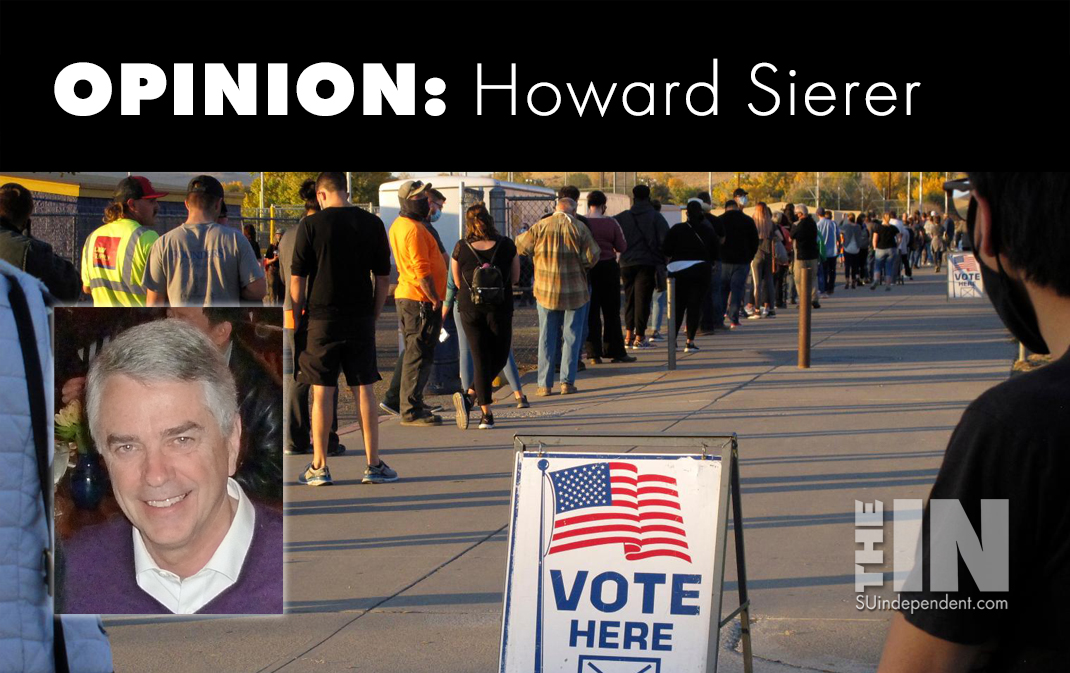
Do Democrats Really Want a Nationwide Popular Vote?
When Hillary Clinton lost the 2016 presidential election after receiving almost three million more popular votes than Donald Trump, Democrats howled. They argued for abolishing the Electoral College, replacing it with a nationwide popular vote.
Be careful what you wish for.
Suppose that in 2017, the required two-thirds vote of Congress had proposed a Constitutional amendment replacing the Electoral College with a nationwide popular vote. Suppose that the required three-quarters of the states had ratified it in time for this year’s election.
That would have made President Trump and his administration responsible for administering this year’s nationwide voting process. Even if a nominally independent commission was designated to monitor or run the election and somehow it was not riven with internal partisan political strife, how well do you think it would stand up to pressure from Trump’s Justice Department or the Federal Election Commission whose members are appointed by the president and confirmed by the Senate?
Democrats spent the last four years wringing their hands about Trump’s supposed fascist and dictatorial tendencies, fearing that he would refuse to leave office for a rightfully-elected successor. So, ask yourself, did Democrats want him counting their votes?
In 2016, Obama demonstrated all too chillingly how an incumbent president can use the machinery of government for purely partisan political purposes. With the main stream media cheering him on, Obama used the FBI, the Justice Department and the CIA to manufacture and sustain a Trump/Russia collusion story, an accusation they all knew was false before they even started.
The result: four years of calling Trump an illegitimate president. Like him or hate him, Trump’s election was not illegitimate.
Both in 2016 and 2020, allegations of voting machine “irregularities” would have provided opportunities for the incumbent president to manipulate a federally-controlled, nationwide popular vote. In late November 2016, an article in the left-leaning Washington Post began:
“Was the 2016 presidential election hacked? It’s hard to tell. There were no obvious hacks on Election Day, but new reports have raised the question of whether voting machines were tampered with in three states that Donald Trump won this month: Wisconsin, Michigan and Pennsylvania.
“According to a report in New York magazine, the share of votes received by Clinton was significantly lower in precincts that used a particular type of voting machine: The magazine story suggested that Clinton had received 7 percent fewer votes in Wisconsin counties that used electronic machines, which could be hacked, than in counties that used paper ballots. That is exactly the sort of result we would expect to see if there had been some sort of voting machine hack.”
The article almost could be republished today by changing Clinton to Trump and Trump to Biden. Should the incumbent president have counted Wisconsin’s votes in either 2016 or 2020?
Incumbent presidents running a single, monolithic nationwide voting process is a terrible idea. I’ll take our current widely-dispersed voting process where a large-scale fraud would require coordinating hundreds of conspirators from multiple states across the country while avoiding even a single leak to the public.
As for the Electoral College, it was put in place by the Founding Fathers because smaller states feared that without it, urban centers in New York, Pennsylvania and Virginia would control the government to the detriment of the rest of the country.
That same fear exists today with coastal urban centers providing the bulk of Democratic votes. Biden received seven million more popular votes than Trump did; five million of those came from the People’s Democratic Republic of California and 1.6 million more from New York City, the same voters who elected self-described radical socialist Bill de Blasio as their mayor.
I prefer not to have California and New York City dictate national policy.



